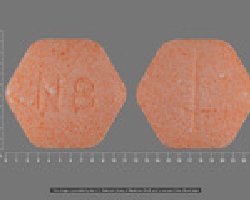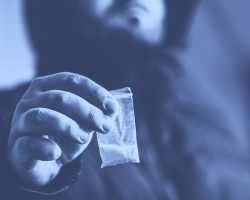Eliminating Health Problems Could Start with Eliminating Drug and Alcohol Abuse

It’s a good guess that nearly everyone wants to be healthy. They want to avoid surgery, unnecessary drugs or even death resulting from illnesses.
The population at large may not realize, however, that many health problems get their start in drug or alcohol abuse. Drug or alcohol abuse are also contributing factors in many conditions of poor health and will worsen many others.
If a person wants his or her best chance at a long and healthy life, skipping drug or alcohol abuse entirely is the very best way to go. If a person is already using drugs or drinking, all is not lost. The human body has a phenomenal ability to heal itself if drugs and alcohol are stopped soon enough.
(Of course, it should be noted that if a person is going to stop using drugs or drinking without going to a medical or drug rehab facility, a doctor should be consulted first to ensure there will be no harmful effects from withdrawal.)
Here are some of the health conditions that are caused or worsened by specific drugs or alcohol.
Alcohol
- Alcoholic hepatitis, chronic inflammation of the liver that can cause liver failure
- Pancreatitis, painful inflammation of the pancreas
- Migraines
- Cardiomyopathy which causes the heart to be unable to pump blood efficiently
- Mental disorders such as psychosis and amnesia
- Myopathy, weakened, atrophied muscles
- Gastritis, stomach irritation resulting in vomiting and pain
- Mouth, liver, esophagus, breast, stomach or colon cancers
- Diabetes
- Ulcers
- Pneumonia
- Tuberculosis
- Osteoporosis
Opioids (painkillers or heroin)
- Severe constipation and stomach pain
- Intestinal perforations
- Pneumonia
- Gangrene of extremities
- Rhabdomyolysis, destruction of muscle tissue
- Lung abscesses
Stimulants (cocaine, methamphetamine, Ritalin and similar drugs)
- Emphysema or bronchitis (when smoked)
- Irregular heartbeat
- Cardiomyopathy
- Stroke
- Severe tooth decay and tooth loss (methamphetamine and cocaine)
- Necrotizing vasculitis, destruction of blood vessels
- Infection, inflammation or destruction of skin cells (cocaine)
- Severe psychological effects such as psychosis, paranoia, anxiety, violence
Marijuana
- Bronchitis
- Pulmonary (lung) infections
- Pneumothorax, air or gas in the space between the lungs and the chest wall, causing a collapse of the lung
- Brain abnormalities including shrinkage of areas of the brain associated with memory
- Cardiovascular complications
Inhalants
- Kidney failure
- Cognitive decline
- Respiratory failure
- Irregular heartbeat
- Hearing loss
- Destruction of bone marrow
- Nerve and brain damage
Benzodiazepines (Valium, Xanax, etc.)
- Cognitive decline including dementia and Alzheimer’s Disease
- Hip fracture
- Headaches
- Brain damage
- Self-harm
Ketamine
- Kidney failure
- Destruction of the bladder
Synthetics
- Impaired heart function and heart attack (Spice)
- An aneurysm (ecstasy)
- Rhabdomyolysis (GHB)
- Kidney failure (GHB or ecstasy)
Many of these drugs can directly cause fatal overdoses. All of them have the ability to create dependence and addiction. But now you can also see how severely these drugs can wreck the drug user’s body and health.
A Wish for Death?

When a person is truly and completely addicted, it’s very hard for them to think about protecting their health.
Some opioid addicts have told me that when they were injecting heroin and realized they could possibly overdose, they didn’t even think this was bad. If they died, they died.
Certainly, not all people addicted to opioids feel this way but when a person does, it’s hard to convince them to stop using drugs so they can take better care of their health.
This is where the family and other loved ones of an addicted person must step in. This truly appalling list of physical harm and destruction can motivate a family member to intervene in the addictive habits of their loved one.
But don’t expect the addicted person to instantly accept your help. The deadening effects of drugs are such that a deeply addicted person very often thinks that he (or she) is not worth helping.
I remember one person I interviewed telling me that when his family offered to send him to rehab, he didn’t want his family to spend any more money on him because he didn’t think he was worth saving, so he refused their help.
Also, an addicted person may be so trapped in the continuing cycle of cravings and drug use that he feels that there is no hope of recovery. When the family finds an effective rehab program with excellent statistics of recovery and tells their loved one about this program, then both sides can have hope that lasting sobriety is finally possible.
Interventions Work
There is a lie circulating through the addiction recovery field. “You have to wait for them to hit rock bottom before they will accept help.” No, that’s not true. A properly done intervention can cut through the addicted person’s objections and help them accept help now.
It’s certainly not an easy process which is why many families seek the help of a professional interventionist. The right preparations must be made before the intervention takes place. The family must be prepared to work in unison on the day of the intervention.
With the fentanyl and other powerful drugs in circulation on the illicit drug market and being found as adulterants in drugs like cocaine and methamphetamine, overdose is always a very real possibility. There really isn’t any time to waste.
Go ahead and make an offer of rehab to your loved one. Be as convincing as you can be. But if it doesn’t work, know that you have another powerful weapon in your arsenal: the services of an experienced and professional interventionist.
This person knows how to tap into the deepest desires of an addicted person which is that person’s heartfelt wish to leave drugs and addiction behind. No one wants to be an addict. No one.
How an Addicted Person Changes

Some people refer to the effects of drugs and addiction as “hijacking” a person’s life.
The addicted person’s ability to think rationally is deeply impaired, as is their natural sense of morality. They will do things while addicted that they would never do if they were sober.
Families who watch a loved one deteriorate from honest, smart and funny into someone who robs or abuses them can’t understand this transition.
That’s why addiction recovery works best when it helps a person recover both physically (from the cravings and accumulated toxicity) and mentally (from the guilt and emotional trauma) and knows that a change in lifestyle is a needed and good thing.
That’s why a replacement drug like methadone or Suboxone alone will never help a person come all the way back to their true selves.
A well-rounded rehabilitation program that offers relief from guilt and trauma, as well as training in sober-living skills, gives a family the chance of welcoming their loved one back into their lives and of creating and maintaining a successful and healthy lifestyle for themselves.


 ®
®